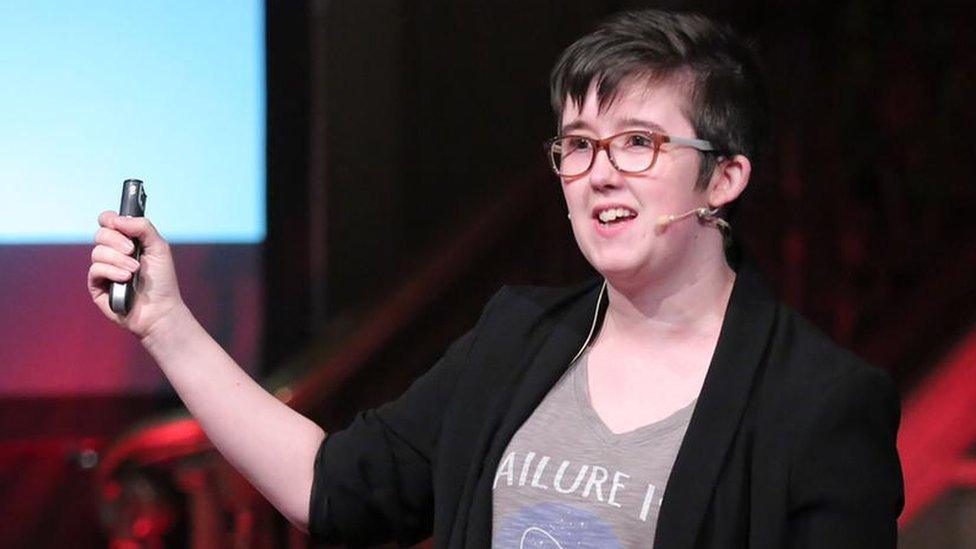Lyra McKee: Two teenage men arrested in connection with journalist's killing
- Published
PSNI released CCTV footage after Lyra McKee's murder
Two teenage men have been arrested in connection with the killing of journalist Lyra McKee.
The pair, aged 18 and 19, were detained under the Terrorism Act.
Ms McKee, 29, was shot as she was observing rioting in Londonderry in Northern Ireland on Thursday night.
It happened in the Creggan estate. Violence broke out after raids in the nationalist Mulroy Park and Galliagh areas by police investigating dissident republican activity.
Ms McKee was standing near a police 4x4 vehicle with other journalists when she was shot.
CCTV captured her final moments in the crowd and mobile phone footage showed the suspected gunman.
The Police Service of Northern Ireland (PSNI) said a gunman fired shots towards police officers at about 23:00 BST on Thursday.
Journalist Lyra McKee, 29, was shot during rioting in Londonderry
In the video, the masked attacker leans from behind cover and appears to fire shots towards police and onlookers.
There has been widespread condemnation of the killing.
At a vigil in Derry on Friday, Ms McKee's partner, Sara Canning, described her as a "tireless advocate and activist" for the LGBT community.
Ms Canning said her partner's dreams had been "snuffed out by a single barbaric act" and she had been left without "the woman I was planning to grow old with".
"The senseless murder of Lyra McKee has left a family without a beloved daughter, a sister, an aunt and a great-aunt; so many friends without their confidante," added Ms Canning.
"We are all poorer for the loss of Lyra."
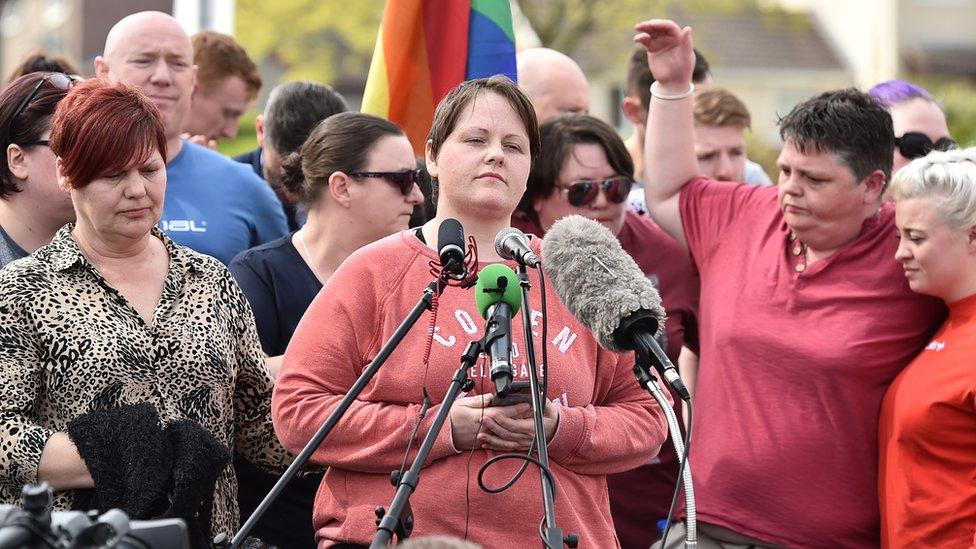
Sara Canning (centre) was "planning to grow old" with her partner Lyra McKee
PSNI Det Supt Jason Murphy, who is leading the investigation, described Ms McKee's death as "senseless and appalling beyond belief".
As he appealed for information on Saturday, he said her killing had led to a "palpable change" in the community's support of the police.
"Yesterday we realised that the vast majority of communities across the whole of Northern Ireland support policing and support police and they support the peace process," he added.
"What we saw yesterday was the visible demonstration of that within the Creggan community. A community that has been very frightened for a long time and for a large part has been held to ransom by terrorist organisations that claims to represent them."
Ms McKee's killing came 21 years after the Good Friday peace agreement was signed in Northern Ireland.
The 1998 peace deal marked the end of decades of violent conflict - known as the Troubles - involving republicans and loyalists during which about 3,600 people are estimated to have died.
The Good Friday Agreement was the result of intense negotiations involving the UK and Irish governments and Northern Ireland's political parties.
Figures from across the political divide, including Sinn Féin leader Mary Lou McDonald and DUP leader Arlene Foster, were among the hundreds of people to attend the vigil.
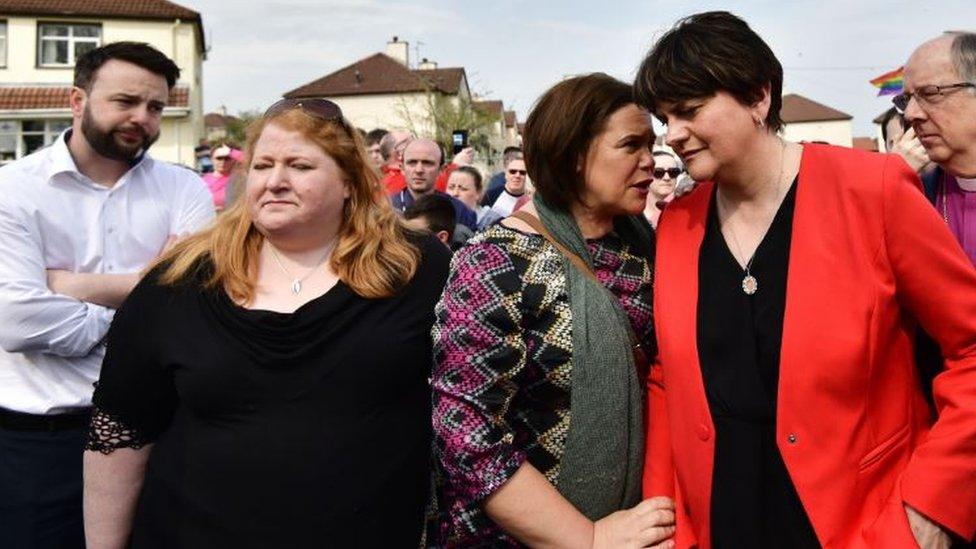
Colum Eastwood, Naomi Long, Mary Lou McDonald and Arlene Foster were among political leaders at a vigil in Derry
One of Ms McKee's close friends, Kathleen Bradley, told the BBC: "Lyra was a voice - she wasn't afraid to stand up and hold her view.
"Lyra managed to get Mary Lou McDonald and Arlene Foster into Creggan [for the vigil] without any high security or barricades.
"Those politicians stood amongst us today and that really is the power of Lyra."
Other world figures united to condemn Ms McKee's killing.
Taoiseach (Irish Prime Minister) Leo Varadkar said Ms McKee "changed lives" as a journalist and an activist and would continue to do so.
"We stand with you as strong as your walls and for as long as they stand," he added.
"This was an attack not just on one citizen - it was an attack on all of us, our nation and our freedoms."
Former US President Bill Clinton said he was "heartbroken".
Irish President Michael D Higgins signed a condolence book at Belfast City Hall and said there was "outrage" in Ireland.
"The loss of a journalist at any time in any part of the world is an attack on truth itself," he said.
"The circumstances in which it happened - the firing on a police force that are seeking to defend the peace process - cannot be condoned by anybody."
The EU's chief Brexit negotiator, Michel Barnier, tweeted that Ms McKee's killing was a "reminder of how fragile peace still is in Northern Ireland".
"We must all work to preserve the achievements of the Good Friday Agreement," he said.
- Published19 April 2019
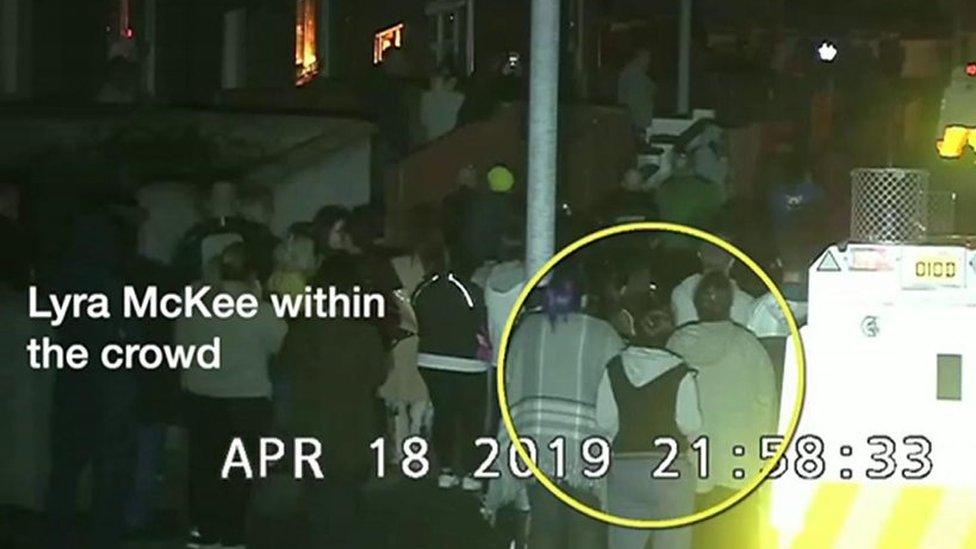
- Published19 April 2019
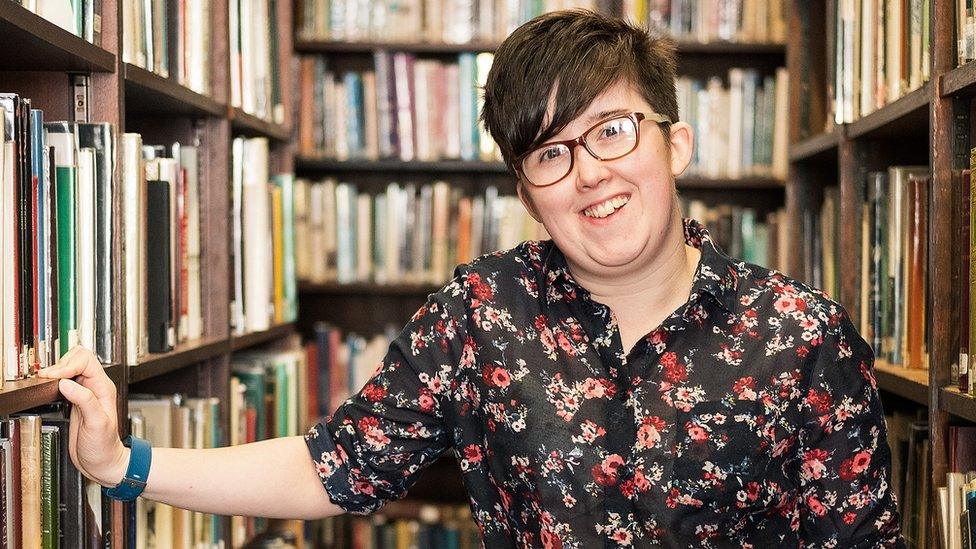
- Published19 April 2019
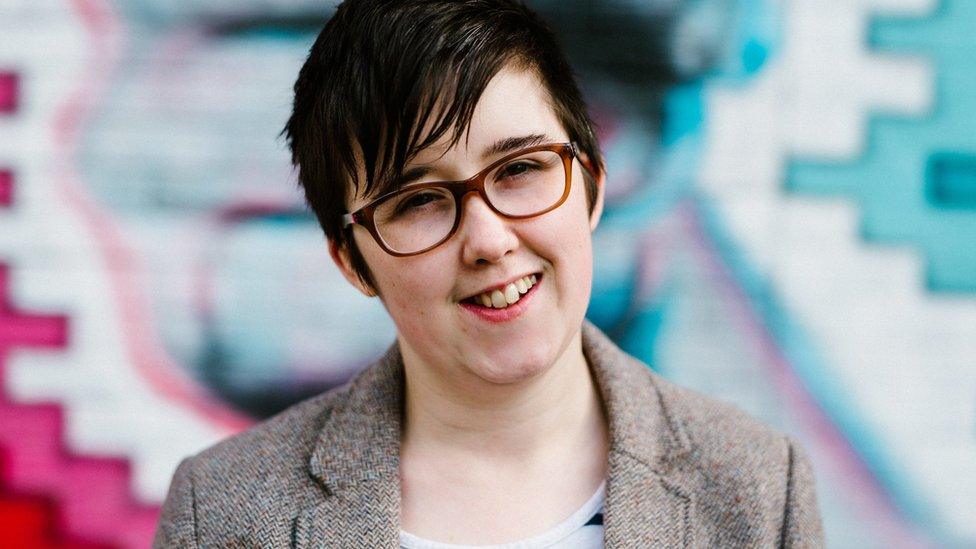
- Published19 April 2019
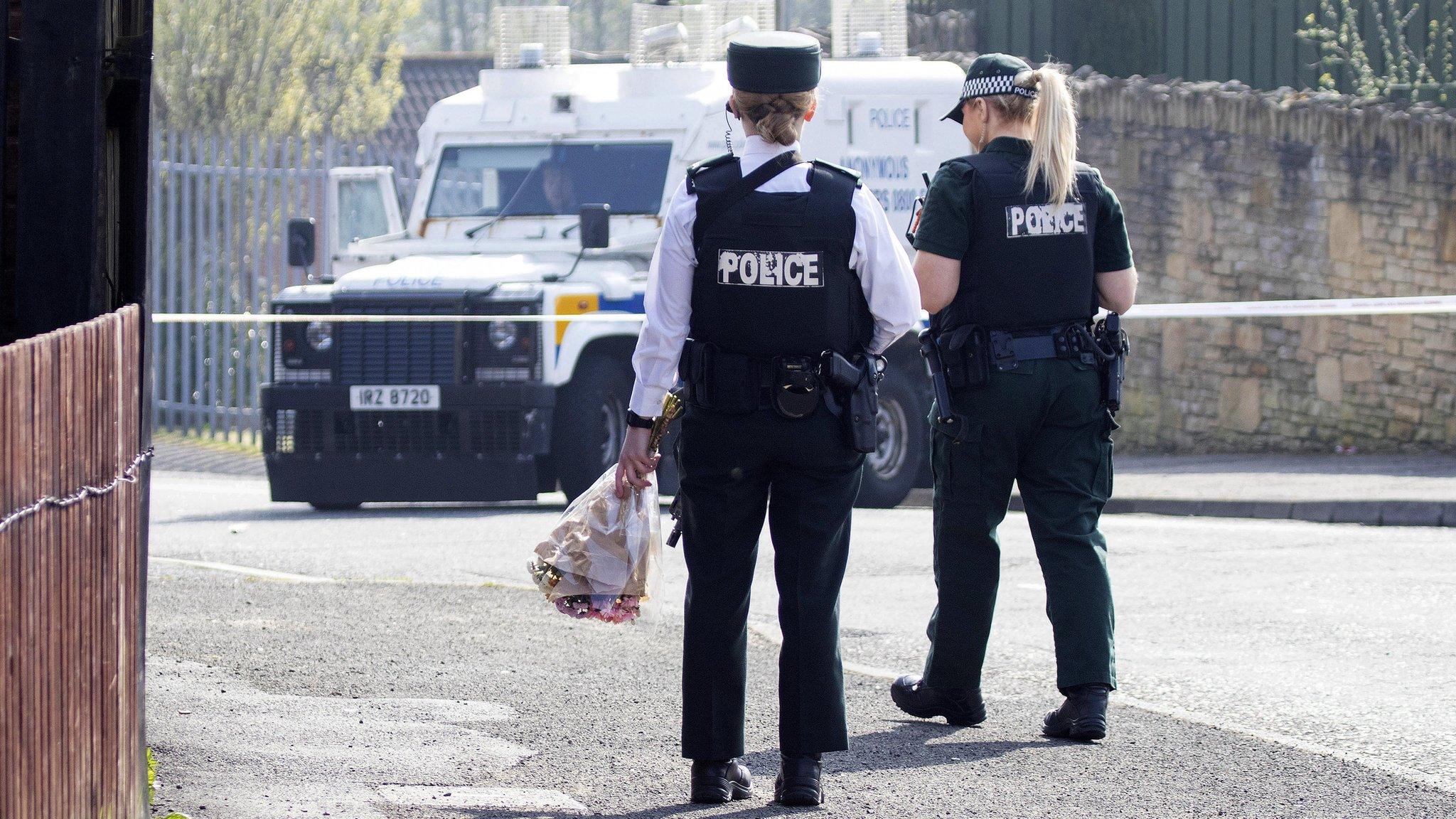
- Published19 April 2019
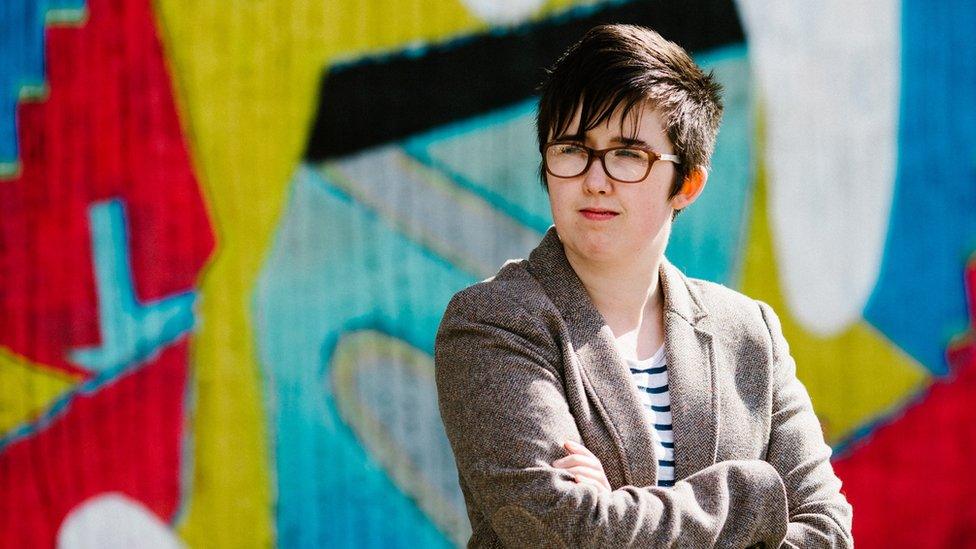
- Published19 April 2019
